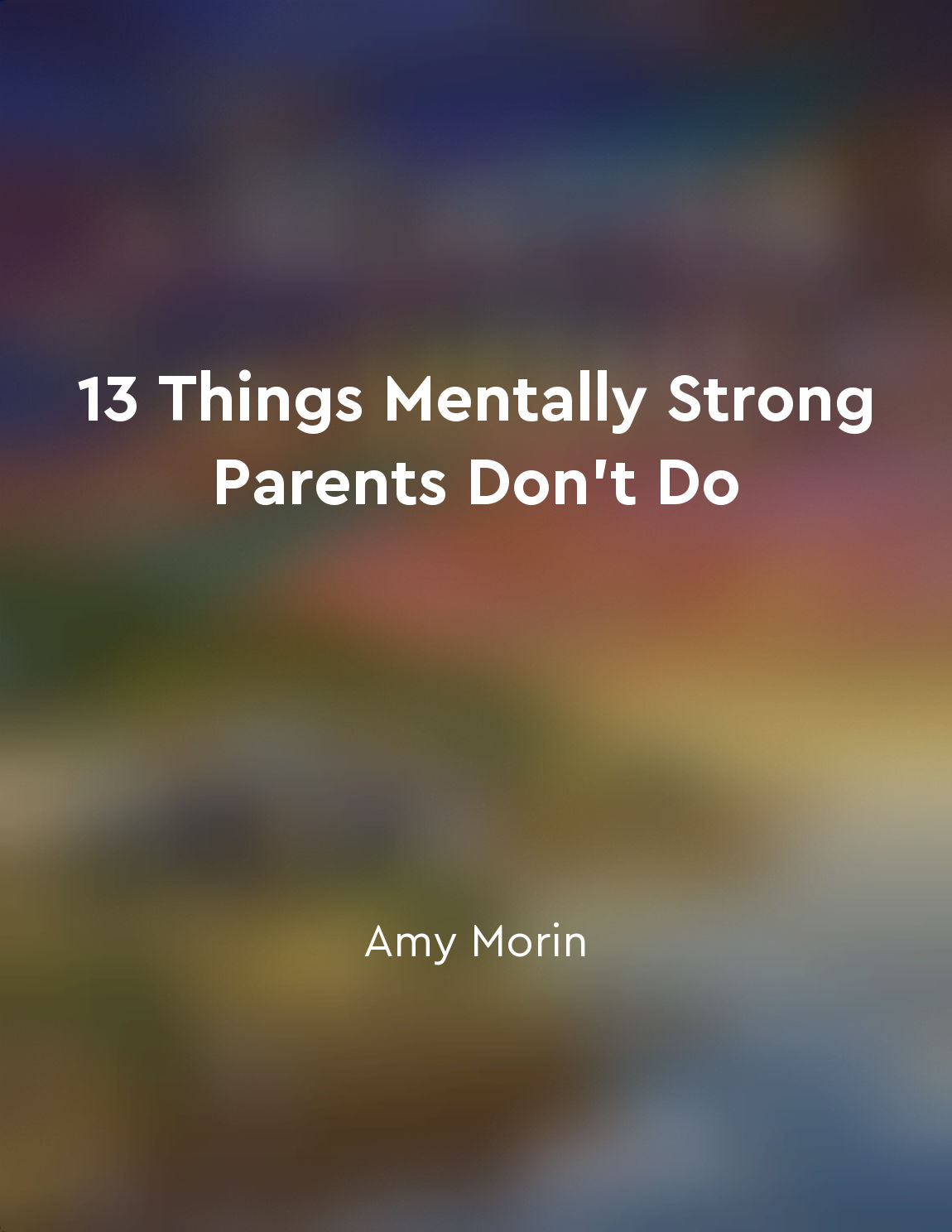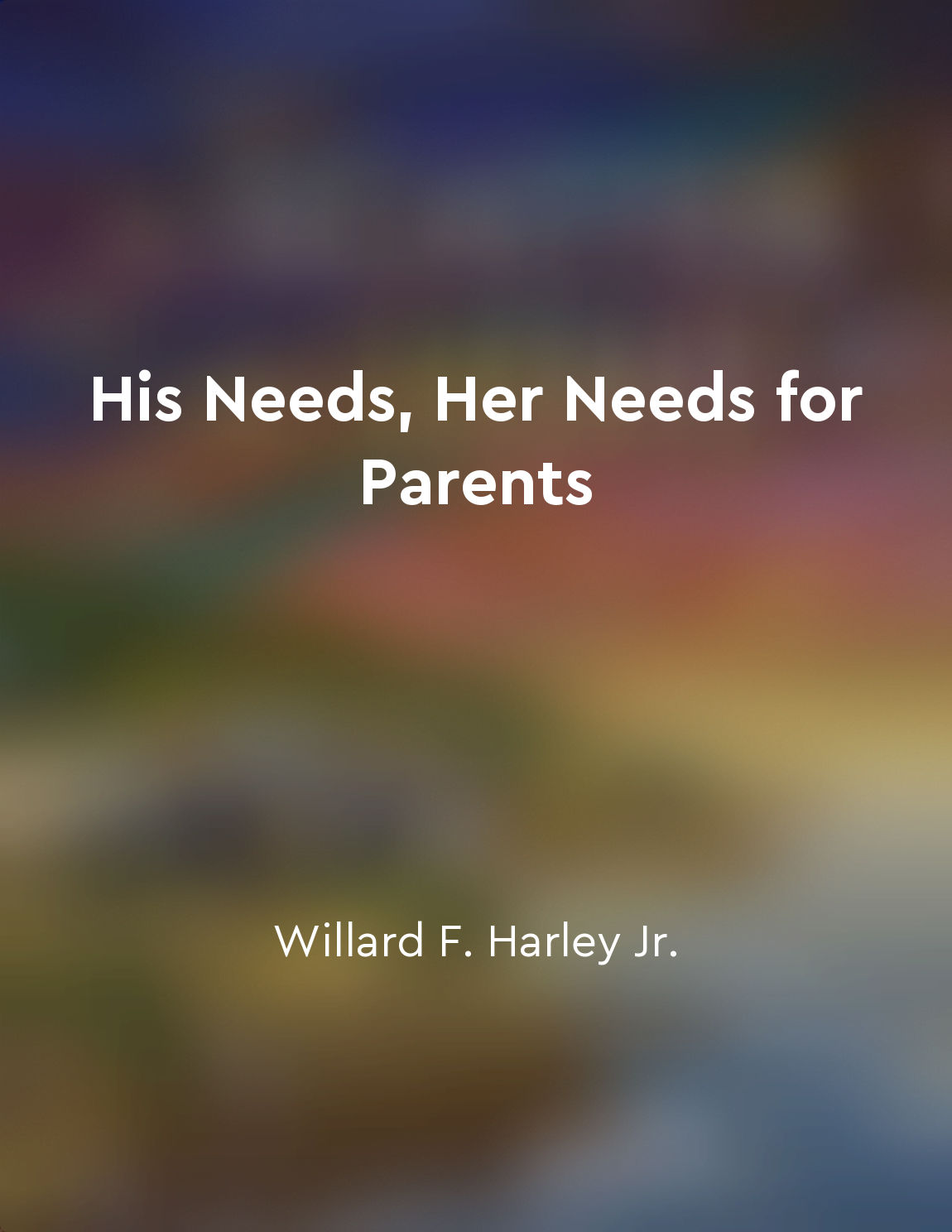Understand your child's perspective from "summary" of Raising Human Beings by Ross W. Greene
To best understand your child's perspective, you must be willing to set your own perspective aside, at least temporarily. This means putting aside your own beliefs, assumptions, and opinions about the situation at hand, and instead focusing on what your child is thinking and feeling. This can be challenging, especially when you are convinced that you are right and your child is wrong. But in order to truly understand where your child is coming from, you need to be able to see things from their point of view. One way to better understand your child's perspective is to ask open-ended questions that encourage them to share their thoughts and feelings. For example, instead of asking, "Why did you do that?" which implies that you think they did something wrong, you could ask, "Can you tell me what you were thinking when you did that?" This approach shows your child that you are genuinely curious about their perspective, rather than trying to catch them in a mistake. Another important aspect of understanding your child's perspective is recognizing that their behavior is a form of communication. When a child is acting out or behaving in a way that you find challenging, it is often because they are struggling to express their thoughts or emotions in a more effective way. By viewing their behavior as a form of communication, you can begin to decipher what they are trying to tell you and respond in a more helpful and compassionate way. It's also important to remember that your child is a unique individual with their own thoughts, feelings, and experiences. Just because you are their parent does not mean that you always know what is best for them or that you have all the answers. By taking the time to truly understand your child's perspective, you can build a stronger relationship based on mutual respect and understanding. In summary, understanding your child's perspective requires setting aside your own beliefs and opinions, asking open-ended questions to encourage communication, recognizing behavior as a form of communication, and acknowledging your child's individuality. By approaching parenting in this way, you can foster a deeper connection with your child and help them navigate the challenges of growing up with compassion and understanding.Similar Posts
Foster a love of learning through handson activities
When children are actively engaged in hands-on activities, they are able to fully immerse themselves in the learning process. T...

Resist the Urge to Rescue Your Child from Every Problem
When parents rescue their children from every problem they face, they inadvertently hinder their child's ability to develop the...
Lead with patience and understanding
When we talk about leading with patience and understanding, we are essentially talking about approaching our children with empa...

Consistent communication is vital in meeting children's emotional needs
In order to meet children's emotional needs, parents must prioritize consistent communication. This means making an effort to e...
Be patient with the process
The concept of being patient with the process is crucial for parents to understand and implement when using the 1-2-3 Magic par...
Conflict is inevitable but can be managed effectively
Conflict is a natural part of any relationship. It's like a shadow that follows us everywhere we go. We can't avoid it, but we ...
Listen actively to understand children's perspectives
One of the most important aspects of communication with children is actively listening to their perspectives. This means really...

Peer orientation can undermine parental influence
When children become more attached to their peers than to their parents, a shift in influence occurs. Suddenly, the opinions an...
Model emotional regulation
When we talk about modeling emotional regulation, we are talking about showing our kids how to manage their big feelings in hea...

Acknowledge cognitive distortions
Understanding cognitive distortions is an essential step in overcoming negative thought patterns and improving our mental well-...
